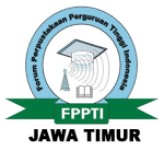Information Culture in Utilizing Digital Libraries for Students of the Faculty of Social and Political Sciences (FISIP) Udayana University
Downloads
The purpose of this study was to determine the information culture in usage of digital libraries on students at Faculty of Social and Political Sciences Udayana University and to describe information culture patternson in usage digital library to support academic activities. This research is a descriptive study with qualitative approach. Methods of data collection is done by conducting interviews and literatures studies. The object of this research is the students of the Faculty of Social and Political Science Udayana University. This study gives an overview of the information culture in usage of digital libraries on students at Faculty of Social and Political Sciences Udayana University. The digital library as an important component in the academic activities of students,thats why this topic is an interesting aspect that deserves to be observed and studied. Behavior and patterns of students in usage of digital library would provide a schematic representation information culture that is inherent in the academic life of students, especially the students of the Faculty of Social and Political Science Udayana University.
Downloads
Association of Research Libraries. (1995). Defenition and purpose of digital library. http://sunsite.barkeley.edu/arl/defenition.html
Bauchspies, R.W. (2006). Mail list discussion-information culture: Concept and application. hhtp://www.si.umich.edu/cristaled/postings/VIOI.html
Ginting, R. T. (2010). Kajian Budaya Informasi dengan Pendekatan Manejemen Pengetahuan. (Skripsi ). Medan: Universitas Sumatera Utara
Sismanto, H. S. (2008). Manajemen perpustakaan digital. Jakarta: Afifah Pustaka
Suroso, A. I., & Hermawan, A. (1998). Manajemen budaya informasi. Amal Agrimedia, 4(3).
Subrata, G. (2009). Automasi perpustakaan. Malang: Universitas Negeri Malang
Record and Library Journal by Unair is licensed under a Creative Commons Attribution-ShareAlike 4.0 International License.
1. The journal allows the author to hold the copyright of the article without restrictions.
2. The journal allows the author(s) to retain publishing rights without restrictions
3. The legal formal aspect of journal publication accessibility refers to Creative Commons Attribution Share-Alike (CC BY-SA).
4. The Creative Commons Attribution Share-Alike (CC BY-SA) license allows re-distribution and re-use of a licensed work on the conditions that the creator is appropriately credited and that any derivative work is made available under "the same, similar or a compatible license”. Other than the conditions mentioned above, the editorial board is not responsible for copyright violation.


 57201398420
57201398420

























